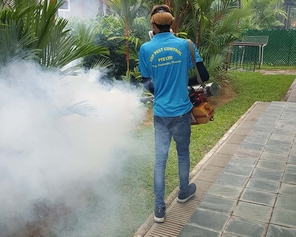Effective Pest Control Services: Safeguarding Your Home and Health
Understanding the Importance of Pest Control
Pests are not only a nuisance but also carriers of diseases. For instance, rodents can spread diseases such as Hantavirus and Salmonella, while mosquitoes are notorious for transmitting malaria, dengue fever, and the Zika virus. Termites, on the other hand, can cause severe structural damage to buildings, potentially leading to costly repairs.
Moreover, pests can contaminate food supplies, leading to foodborne illnesses. In commercial settings like restaurants and food processing facilities, the presence of pests can result in health code violations and damage to the establishment's reputation.
Types of Pest Control Services
Pest control services typically offer a variety of methods to handle different types of infestations. These methods can be broadly categorized into chemical, biological, and physical control strategies.
Chemical Control: This involves the use of pesticides to eliminate pests. Modern pest control services use environmentally friendly and human-safe chemicals, minimizing the impact on the surrounding ecosystem. Chemical treatments are effective for a wide range of pests, including insects and rodents.
Biological Control: This method leverages natural predators or parasites to control pest populations. For example, introducing ladybugs to control aphid populations in gardens is a common biological control strategy. This method is environmentally friendly and sustainable, reducing the need for chemical interventions.
Physical Control: This includes traps, barriers, and other physical means to prevent pests from entering or remaining in an area. Physical control methods are often used in conjunction with other strategies for maximum effectiveness.
The Process of Pest Control
A typical Pest control singapore follows a systematic process to ensure thorough eradication of pests:
Inspection: A detailed inspection of the property is conducted to identify the type and extent of the infestation. This step is crucial for developing an effective treatment plan.
Identification: Identifying the specific type of pest is essential for choosing the appropriate control methods. Different pests require different treatments, and accurate identification ensures targeted and efficient eradication.
Treatment Plan: Based on the inspection and identification, a customized treatment plan is developed. This plan outlines the methods to be used, the duration of treatment, and any necessary follow-up actions.
Implementation: The treatment plan is executed using the chosen control methods. This may involve the application of pesticides, setting up traps, or introducing biological controls.
Monitoring and Follow-Up: After the initial treatment, ongoing monitoring is essential to ensure that the pest problem is fully resolved. Follow-up treatments may be necessary to address any remaining pests or prevent future infestations.
Choosing a Pest Control Service
Selecting the right pest control service is crucial for effective pest management. Homeowners and business owners should look for licensed and certified professionals with a proven track record of success. Reading reviews and asking for recommendations can help in making an informed decision.
Additionally, it is important to choose a service that prioritizes safety and environmental responsibility. The use of eco-friendly products and humane methods should be a key consideration.

Comments
Post a Comment